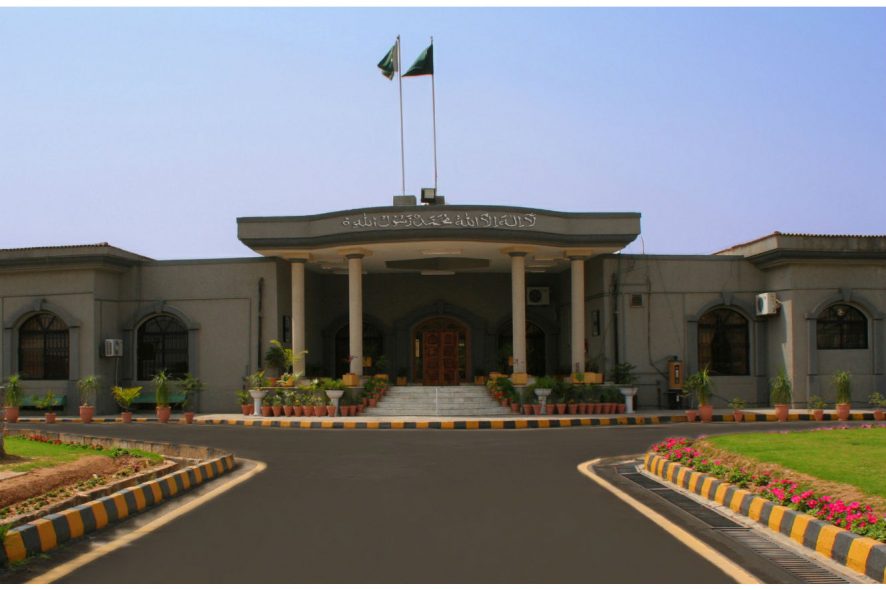Islamabad Special Court: A Full Bench of Waqar Ahmed Seth, Nazar Akbar and Shahid Karim, JJ. sentenced Former President Pervez Musharraf of Pakistan to death for ‘High Treason’, which is defined under Article 6 of the Constitution of the Islamic State of Pakistan, 1973 read with Section 2 which prescribes its punishment and Section 3 thereof which provides for the lodging of the complaint of this nature of the High Treason (Punishment) Act, 1973 falling within the jurisdiction of the Special Court, established under Act XVII of 1976.
Pervez Musharraf had procured the democratically elected Nawaz Sharif’s government by a military coup in 1999. Subsequently, when the latter returned to power, he initiated a case of treason against the former in 2013 after Musharraf had suspended the constitution in 2007.
In this case, the accused has been tried based on the following counts. The first being ‘Proclamation of Emergency Order, 2007’ which was found to be unconstitutional and unlawful, second being ‘Provisional Order No. 1 of 2007’ which not only unconstitutionally empowered him to amend the Constitution but also he suspended the Fundamental Rights enshrined in Articles 9, 10, 15, 16, 17, 19 and 25 of the Constitution, the third being ‘ Oath of Office (Judges) Order, 2007’ which required the judges to abide by the Emergency Proclamation 2007 and also led to the removal of the various Judges of the Supreme Court of Pakistan including the Chief Justice of Pakistan, the fourth being ‘ Constitutional (Amendment) Order, 2007’where Articles 175, 186A, 198, 270B, 270C were unconstitutionally amended and Article 270AA was unconstitutionally added to the Constitution and the last being ‘Constitutional ( Second Amendment), 2007’ where the constitution was again unconstitutionally amended. In all the above Proclamations the accused had thereby subverted the Constitution-making him punishable under the aforesaid Acts.
The accused had been asked to appear before the Court in the above context and was also allowed to record his statement under Section 342 of Criminal Procedural Code (CrPC) but he failed to do so quoting his medical grounds. After giving notices to him and to his surety, the Court finally issued a non-bailable warrant of arrest against him due to his non-appearances before the Court. Ultimately he was declared a Proclaimed Offender and fugitive on 12th July 2016. Further, his contention to return to Pakistan for recording his statement as soon as his medical condition improves was also considered. And accordingly, a commission was appointed under Section 6 (1) (d) of the Criminal Amendment (Special Court) Act, 1976 for the required.
The Counsel for the defendant Raza Bashir pleaded that the accused bore circumstances like upsurge in terrorist activities, a complete breakdown of government machinery due to the interference of Courts in the name of judicial activism and the poor state of economy justifying his acts. Further, the counsel argued that the accused was advised to do so by the Cabinet of the Prime Minister.
The Court observed that the first plea of the defence counsel does not stand on facts as the accused has been found to have violated Article 5 of the Constitution. The Doctrine of Necessity has been once again misused here. His second plea that he issued such Proclamations on the advice of the Cabinet also cannot stand as the Court opined that the above-said matter has already been decided by the Supreme Court and even the review against the verdict has also been decided unanimously with 14 to nil ratio against the accused in the case of Sindh High Court Bar Association v. Federation of Pakistan, 2009 SCC OnLline Pak SC 4. The Court found that the acts of the accused are in abeyance with the Constitution of the country and he squarely fell in the definition of High Treason as cited in Article 6 of the Constitution.
In view of the facts, the Court with a majority held that the accused be hanged by his neck till death. His death sentence was awarded in absentia.[Federal Government of Islamic Republic of Pakistan v. General (R) Pervez Musharraf, Complaint No. 1 of 2013, decided on 17-12-2019]







